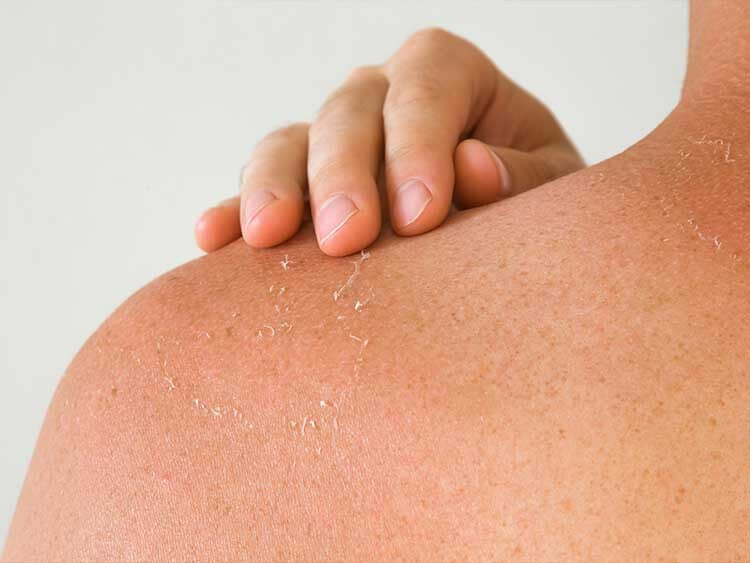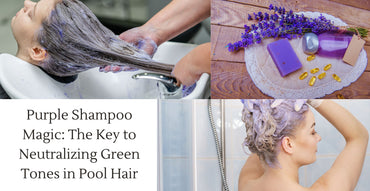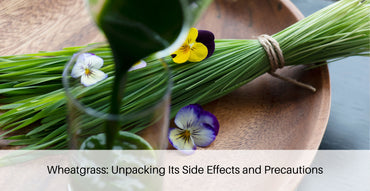"Unveiling Shower Gel: A Comprehensive Guide to Luxurious Bathing" can be a fun and educational read for anyone looking for a luxurious and joyful bathing experience. This blog will look at the structure and some content suggestions for a luxurious Bathing Guide.
Exploring the Basics of Shower Gel

Shower gel is a liquid washing solution used in showers or baths. It's a popular substitute for traditional bar soaps. Shower gels are typically made up of water, surfactants, and different chemicals that wash and moisturise the skin. The shower gel is an adaptable and pleasurable product that provides a wonderful bathing experience while properly washing and moisturising the skin. You may make your shower routine more enjoyable and healthy for your skin by learning its fundamentals and selecting the best one for your needs.
What Sets Shower Gel Apart from Traditional Soaps
Shower gels and traditional soaps have the same purpose: to cleanse the skin. However, several variables distinguish shower gels from regular bar soaps, influencing their usage, formulation, and skin effects:
Form and Texture:
-
Shower Gels: These are liquid cleansers that come in bottles or containers. When applied to damp skin, they have a gel-like consistency and quickly lather. Shower gels are frequently available in a variety of colours and perfumes.
-
Traditional Soaps: Bar soaps are solids that come in a variety of shapes and sizes. They are created by combining fats or oils with an alkali, typically sodium hydroxide (lye). The texture of bar soaps can range from creamy to gritty, and they may contain exfoliants such as oats or seeds.
Ingredients and Formulation:
-
Shower Gels: They contain water, surfactants (for cleansing), moisturizing agents, fragrances, and often include additional beneficial ingredients like vitamins, essential oils, or herbal extracts. Shower gels tend to have a pH closer to the skin's natural pH, making them less likely to strip away natural oils, which can make them milder and less drying compared to some soaps.
-
Traditional Soaps: Fats or oils are combined with an alkali in a procedure known as saponification to create them. The higher pH of traditional soaps may make them more alkaline and possibly drying for certain skin types. But there are also bar soaps that are milder and have a pH balance.
Shower gels and traditional soaps each have their own set of characteristics and advantages. Shower gels are popular because of their convenience, variety of fragrances, and often more moisturising formulas, whereas traditional soaps have devoted followers who appreciate their simplicity and, in some cases, natural ingredients. The decision between them is frequently influenced by personal preferences, skin type, and specific skincare requirements.
Key Ingredients in Quality Shower Gels
Shower gels of high quality frequently contain a blend of ingredients that effectively cleanse the skin while also providing hydration and nourishment. Here are some key ingredients commonly found in high-quality shower gels, as well as their functions:
-
Surfactants: These are common surfactants that produce lather and aid in the removal of dirt, oil, and impurities from the skin. They can be effective cleansers, but they may be too harsh for some people with sensitive skin.
-
Moisturising Agents: Glycerin is a humectant that attracts moisture to the skin, keeping it hydrated and preventing dryness. Aloe vera is well-known for its calming effects and for hydrating and calming skin. This ingredient aids in the retention of moisture in the skin, keeping it plump and hydrated.
-
Natural Oils and Butters: Coconut oil, jojoba oil, and olive oil are all high in fatty acids and provide hydration, leaving skin soft and smooth. A natural emollient that helps to lock in moisture and improve skin elasticity.
-
Vitamins and Antioxidants: Vitamin E is well-known for its antioxidant properties, which aid in the protection of the skin from free radicals and the promotion of skin health. Improves skin firmness by brightening it and supporting collagen production.
-
Botanical Extracts and Plant-Based Ingredients: This extract soothes and calms the skin, making it ideal for irritated or sensitive skin. Antioxidants found in green tea extract help to revitalise and rejuvenate the skin. Showers can be made more peaceful by using lavender extract, which is well-known for its calming qualities.
-
Essential Oils and Fragrances: Essential oils are pure, natural plant-based oils that are used in aromatherapy and to flavor shower gels. Synthetic fragrances are used in shower gels to provide a variety of scents.
-
pH-Balanced Formulas: Some high-quality shower gels are pH-balanced with the skin's natural pH, which aids in the maintenance of the skin's moisture barrier and prevents dryness or irritation.
-
Avoidance of Harsh Ingredients: Many high-quality shower gels are free of these potentially harsh or irritating ingredients, making them ideal for people with sensitive skin or those who prefer more natural products.
The Variety of Shower Gel Formulations
Shower gels come in a variety of formulations, each tailored to specific skin types, preferences, and skincare requirements. Here's a rundown of the various shower gel formulations on the market:
-
Moisturising Shower Gels: The goal of these gels is to provide extra hydration to the skin while cleansing. Glycerin, natural oils (such as coconut oil and jojoba oil), shea butter, and aloe vera are the main ingredients. They help retain moisture and prevent skin dryness after showering, making them ideal for dry or sensitive skin types.
-
Exfoliating Shower Gels: The purpose of this product is to slough off dead skin cells and unclog pores, resulting in smoother skin. Gentle exfoliating particles such as jojoba beads, crushed apricot seeds, or alpha hydroxy acids (AHAs) are frequently used. Improves skin texture, stimulates cell turnover, and prevents ingrown hairs. To avoid over-exfoliation, use only a few times per week.
-
Sensitive Skin Shower Gels: Formulated with gentle ingredients to soothe sensitive or easily irritated skin. Fragrance-free or with soothing ingredients such as chamomile extract, oatmeal, or aloe vera. Gentle cleansing without causing redness, itching, or dryness is recommended for those with sensitive skin conditions such as eczema or rosacea.
-
Antibacterial or Antifungal Shower Gels: The purpose of this medication is to prevent bacterial or fungal infections on the skin. Antimicrobial agents such as tea tree oil, salicylic acid, or benzoyl peroxide are key ingredients. Aids in the fight against bacteria and/or fungi that can lead to skin infections, body odor, and acne.
-
Aromatherapy Shower Gels: The goal is to induce relaxation and a sensory experience while taking a bath. Essential oils like lavender, eucalyptus, citrus oils (orange, lemon), and peppermint are important ingredients. Benefits of aromatherapy include improving mood, calming the mind, and stimulating the senses while taking a shower.
-
pH-Balanced Shower Gels: The product is designed to prevent dryness and irritation by matching the pH level of the skin. pH adjusters and natural moisturisers such as glycerin or aloe vera are key ingredients. It aids in the maintenance of the skin's natural barrier, making it suitable for those with sensitive or easily irritated skin.
-
Natural or Organic Shower Gels: Made from natural, plant-based ingredients that are free of harsh chemicals and artificial fragrances. Organic botanical extracts, natural oils, and essential oils are the main ingredients. Ideal for those looking for more environmentally friendly or skin-friendly products that limit their exposure to synthetic ingredients.
The range of shower gel formulas accommodates various skin types, inclinations, and intended outcomes. Your skin type, any particular skin conditions, and your personal preferences for natural ingredients or scents to improve your bathing experience all need to be taken into account when selecting the ideal formulation.
Selecting the Right Shower Gel

Choosing the best shower gel requires taking into account several aspects, including skin type, unique skin concerns, personal tastes, and ingredients. Here's a step-by-step guide to choosing the best shower gel for you:
-
Identify Your Skin Type: For dry skin, look for moisturising shower gels with glycerin, natural oils (coconut, almond, or jojoba), or shea butter. Look for oil-free or non-comedogenic shower gels that will not clog pores. Consider formulas with exfoliating properties to remove excess oil and dirt. Shower gels with gentle, soothing ingredients like aloe vera, oatmeal, or chamomile extract are ideal for sensitive skin. You have more options, but you may prefer shower gels with balanced formulations that are appropriate for daily use.
-
Consider Specific Skin Concerns: Look for shower gels that contain salicylic acid or tea tree oil to help prevent breakouts. Seek shower gels with gentle, fragrance-free formulas designed for sensitive skin and conditions like these.
-
Read Labels and Ingredients: If you have sensitive skin, look for shower gels that are free of sulphates, parabens, and phthalates. Consider natural or organic shower gels with botanical extracts, essential oils, and fewer artificial additives if you prefer a more eco-friendly or skin-friendly option.
-
Fragrance Preferences: If you enjoy the benefits of aromatherapy, look for shower gels that contain essential oils such as lavender (relaxing), citrus (refreshing), or eucalyptus (invigorating). If you're sensitive to scents, opt for fragrance-free or hypoallergenic shower gels.
-
Allergy or Sensitivity Testing: Before using a new shower gel, perform a patch test, especially if you have allergies or sensitive skin, to ensure there are no adverse reactions.
-
Trial and Observation: Begin with a small bottle or sample to assess the effectiveness of the shower gel and how your skin reacts. Examine your skin's reaction after a few applications to see if the shower gel is suitable for your skin type and does not cause dryness, irritation, or breakouts.
-
Personal Preference and Experience: Take into account the texture, lather, and feel of the shower gel while using it, as well as how your skin feels afterwards. Your personal experience is vital in choosing the right product.
Shower Gels for Different Skin Types
Shower gels for dry skin, shower gels for oily or acne-prone skin, shower gels for sensitive skin, shower gels for normal/combination skin, and shower gels with natural components are among the recommendations. Remember that individual sensitivities to products can vary, so before committing to a new shower gel, run a patch test or try sample quantities, especially if you have sensitive skin or specific skin concerns.
The Role of Fragrance in Shower Gels
Fragrance is important in shower gels because it enhances the bathing experience by stimulating the senses and influencing mood. Enhancing the Shower Experience, Creating a Pleasurable Scent, Mood Enhancement, and Considerations for Fragrance in Shower Gels are some of the roles of fragrance in shower gels. Fragrance in shower gels contributes to the overall bathing experience by affecting mood, giving sensory stimulation, and boosting the joy of washing. Finding a shower gel with a smell that appeals to you and does not cause skin sensitivity can make your shower more fun and refreshing.
Eco-Friendly and Natural Shower Gel Options
There are a variety of eco-friendly and natural shower gel alternatives available, with a focus on sustainable ingredients and packaging. This blog has discussed some eco-friendly and natural shower gel brands and products.
Tips for Choosing Eco-Friendly Options:
-
To ensure sustainability and ethical practises, look for products with certifications such as USDA Organic, EcoCert, or Leaping Bunny (cruelty-free).
-
Check the ingredient list to make sure it does not contain any harsh chemicals, parabens, sulphates, or synthetic fragrances.
-
Choose products with minimal or recyclable packaging to reduce your environmental impact.
Choosing eco-friendly and natural shower gels promotes the use of responsibly sourced ingredients, which benefits both your skin and the environment.
Maximizing the Benefits of Shower Gel

Maximising most out of shower gel, you must not only choose the best product for your skin but also incorporate proper practices and habits into your bathing regimen. Choose the best shower gel, employ proper application techniques, place emphasis on hydration and frequent exfoliation, consider aromatherapy, patch testing and allergens, storage, and hygiene, and consistency are all important for optimal skin care benefits. By using these suggestions and techniques, you may get the most out of your shower gel, enhance skin health, and have a more pleasurable bathing experience.
Best Practices for Using Shower Gel
Here are some best practises for using shower gel effectively to improve your bathing routine:
-
Wet Your Skin Thoroughly: Before applying shower gel, make sure your skin is completely wet. This allows the gel to lather and spread more easily.
-
Use the Right Amount: Typically, a small amount of shower gel is sufficient. You don't need a large quantity to create a rich lather. Apply an adequate but modest quantity onto a sponge, loofah, or your hands.
-
Proper Application Technique: In circular motions, gently rub the gel into your skin. This technique aids in the even distribution of the product and promotes thorough cleansing.
-
Focus on Cleansing: Concentrate on areas prone to sweat, dirt, or odour, such as the underarms, feet, and groyne. Make certain that these areas are thoroughly cleaned.
-
Be Gentle with Exfoliation: If your shower gel has exfoliating properties, avoid scrubbing with too much pressure to avoid skin irritation or damage.
-
Pay Attention to Sensitive Areas: When washing sensitive areas such as the face, genital area, or areas prone to irritation, use gentle, gentle strokes.
-
Rinse Thoroughly: After lathering and cleansing, thoroughly rinse your skin with lukewarm water. Ensure all traces of the shower gel are washed away to prevent residue buildup.
-
Follow with Moisturizer: After showering, apply a moisturiser to seal in moisture. This is especially important if you have dry skin.
-
Avoid Hot Water: Hot water can strip your skin's natural oils, causing dryness. To avoid excessive drying, use lukewarm water instead.
-
Patch Test New Products: Perform a patch test on a small area of your skin before using a new shower gel to check for any allergic reactions or sensitivities.
-
Maintain Hygiene: To avoid contamination and bacteria growth, keep your shower gel container clean and tightly closed. Follow the storage recommendations.
-
Use Suitable Products: Choose a shower gel that is appropriate for your skin type and any skin concerns you may have, such as dryness, sensitivity, or acne.
Following these best practises ensures that you get the most out of your shower gel while cleansing your skin effectively without causing irritation or dryness. Additionally, a consistent and mindful approach to using shower gel can contribute to healthier and refreshed skin.
Enhancing Your Shower Routine
Improving your shower practise may transform this daily ritual into a rejuvenating and pleasurable experience. Creating a pleasant environment, improving your shower basics (temperature and water pressure), steam therapy, skincare integration, mindfulness and relaxation, time management, pampering extras, and experimenting and personalise are some strategies to elevate your shower routine. Incorporate aspects that make you feel relaxed and invigorated, and your shower will become a treasured daily refuge.
Shower Gels for Specific Skin Needs
Here are some shower gel recommendations based on your skin type:
-
Shower Gels for Dry Skin: Moisturex Wash: Moisturex Wash is a body wash that helps to sooth the skin making it soft and healthy. It helps to calm the warts, skin ailments, skin burns, and other skin conditions.
-
Shower Gels for Sensitive Skin: Aveeno Skin Relief Body Wash: Aveeno Skin Relief Body Wash is a fragrance-free body wash, with a soothing Triple Oat formula, gently cleanses while leaving skin feeling moisturized. The skin relief body wash formulated for sensitive skin is dye- & soap-free.
-
Shower Gels for Acne-Prone Skin: Sebamed Olive Face & Body Wash: Provide natural care for your skin by replacing your ordinary soap with the dematologically tested Sebamed Olive Face and Body Wash pH 5.5. It is suitable for sensitive and delicate skin and its soothing action is highly useful in case of soap intolerance.
-
Shower Gels for Oily Skin: Sebamed Shower Oil pH 5.5: Sebamed Shower Oil pH 5.5 is a patented formulation containing 50% avocado oil which restores the hydrolipid balance of the skin. The ultra-mild formulation is ideal for delicate skin and cases of soap intolerance. Sebamed Shower Oil regenerates and lubricates the skin making it silky soft and smooth to touch. The product is highly suited for sensitive skin types.
-
Shower Gels for Itchy Skin: FCL Oatsilk Soap Free Body Wash: FCL Oatsilk Soap Free Body Wash helps alleviate all the symptoms of skin irritation, dryness, discomfort, and itchiness. It offers complete cleansing without drying the skin. The soap-free, pH-balanced formula decreases scaliness and maintains the surface acid mantle.
-
Shower Gels for Normal Skin: BABE Hydra-Calm Body Wash: Get effective nourishment and protection for your skin with this daily body wash. Babe Hydra-Calm Body Wash is a mild body wash formulated to respect your skin's natural balance. Due to its high skin tolerance, it gently cleanses the skin and protects the natural skin barrier, making it suitable for daily hygiene for sensitive skin. Enriched with chamomile to calm and effectively soothe the skin, this product provides instant comfort. It contains highly effective active ingredients that strengthen the skin's natural protective barrier while moisturizing.
Consider your skin type, any specific concerns, and individual sensitivities or allergies when selecting a shower gel to find the most appropriate product that effectively addresses your skin's needs.
The Future of Shower Gels

Predicting the exact future of shower gels is impossible, but several trends and advancements can be predicted based on ongoing developments in the skincare industry and consumer preferences, such as sustainable formulations, and packaging, advanced skincare benefits, technology integration, natural and clean beauty focus, aromatherapy and sensory experiences, consumer preferences, and personalisation. Changes in customer preferences, technological improvements, and a growing need for more natural and personalised skincare solutions are expected to force brands to adapt. However, changing customer needs and preferences, as well as advances in skincare research and technology, will determine the precise path.
Innovations in Shower Gel Formulations
Shower gel formulation innovations are focusing on sustainability, advanced skincare benefits, natural ingredients, enhanced sensory experiences, and potential technological integration. Brands strive to meet a wide range of consumer needs, including skin health, environmental concerns, and personal preferences. Continued research and technology improvements are likely to generate future innovations in shower gel formulation to improve both efficacy and user happiness.
Trends in Sustainable and Ethical Bath Products
Responsible sourcing, eco-friendly packaging, water conservation, social responsibility, and consumer education are key trends in sustainable and ethical bath goods, including shower gels. The increased emphasis on sustainability in the cosmetics sector indicates a dedication to decreasing environmental effects while fostering ethical and responsible shopping. To address the growing demand for ecologically friendly and socially responsible bath products, brands are continuing to innovate and improve their methods.















